Introduction
In the dynamic and fast-paced world of video game development, success hinges on the talent that drives creativity, innovation, and seamless execution. Hiring the right individuals can make or break a video game company, influencing the quality of games produced, company culture, and overall business success. In this comprehensive guide, we will explore the key factors to consider when hiring talent for a video game company, providing examples and actionable insights.
Understanding the Unique Needs of a Video Game Company
Video game development is a multidisciplinary field that requires a diverse set of skills. From game designers and programmers to artists, writers, and quality assurance specialists, each role plays a crucial part in the development process. It is essential to identify the specific needs of your company and the projects you undertake before initiating the hiring process.
Example: Suppose your company is gearing up to create a cutting-edge virtual reality game. In this case, you would prioritize hiring individuals with expertise in VR development, 3D modeling, and immersive storytelling.
Crafting Comprehensive Job Descriptions
Clear and compelling job descriptions are the first step in attracting the right talent. Clearly outline the responsibilities, required skills, and qualifications for each position. Additionally, emphasize the company culture, values, and the exciting projects that potential hires will be a part of.
Example: A job description for a game programmer could highlight the opportunity to work on the latest game engine technology, collaborate with a passionate team, and contribute to the creation of a highly anticipated game title.
Leveraging Specialized Recruitment Platforms
Utilize industry-specific job boards, social media, and networking events to reach potential candidates with a passion for gaming. Platforms like Gamasutra, Unity Connect, and LinkedIn can connect you with professionals who are not only skilled but also deeply invested in the gaming industry.
Example: If you are looking for a concept artist with a strong background in fantasy RPGs, posting on specialized forums or attending events like the Game Developers Conference (GDC) could yield excellent results.
Building a Diverse and Inclusive Team
Diversity in a team fosters creativity and brings different perspectives to the table. Ensure that your hiring practices are inclusive and actively seek talent from various backgrounds, ethnicities, genders, and experiences.
Example: A video game company aiming to create culturally diverse and inclusive games could prioritize hiring developers who bring unique cultural perspectives to the team, enriching the creative process.
Prioritizing Passion for Gaming
Look for candidates who are not only qualified but also genuinely passionate about gaming. Whether it’s a lifelong love for video games or a deep understanding of gaming culture, a shared enthusiasm for the industry can drive motivation and commitment.
Example: When interviewing a candidate for a game design position, consider their personal gaming experiences, projects, or contributions to the gaming community that demonstrate a true passion for the medium.
Conducting Thorough Interviews and Assessments
Rigorous interview processes, including technical assessments and portfolio reviews, are crucial to evaluating a candidate’s skills and cultural fit. Consider practical challenges or coding tests relevant to the specific roles you are hiring for.
Example: For a game level designer position, ask candidates to present a portfolio showcasing their previous level designs, discussing their thought process and decision-making in creating immersive gaming environments.
Investing in Continuous Learning and Development
The gaming industry evolves rapidly, with new technologies and trends emerging regularly. Encourage a culture of continuous learning within your team, and seek candidates who demonstrate a willingness to adapt and grow in their roles.
Example: A candidate with a track record of attending industry conferences, participating in online courses, or contributing to open-source game development projects may be indicative of a proactive and adaptable mindset.
Promoting a Positive Company Culture
A positive and supportive company culture is essential for retaining top talent. Foster an environment where creativity thrives, feedback is constructive, and employees feel valued and appreciated.
Example: Consider implementing regular team-building activities, creative workshops, or “passion projects” that allow team members to work on projects outside their regular responsibilities, fostering a sense of ownership and satisfaction.

Best Online Education Platforms Where You Can Learn About Hiring Talent in the Video Game Industry
In the quest to hire the right talent for a video game company, online education courses platforms are indispensable tools for upskilling and evaluating potential hires. By leveraging the resources offered by these platforms, recruiters can identify candidates with the latest skills and knowledge, ensuring their teams are equipped to tackle the challenges of modern game development. Stay ahead of the curve, explore these platforms, and unlock the pixel potential of your team.
LinkedIn Learning
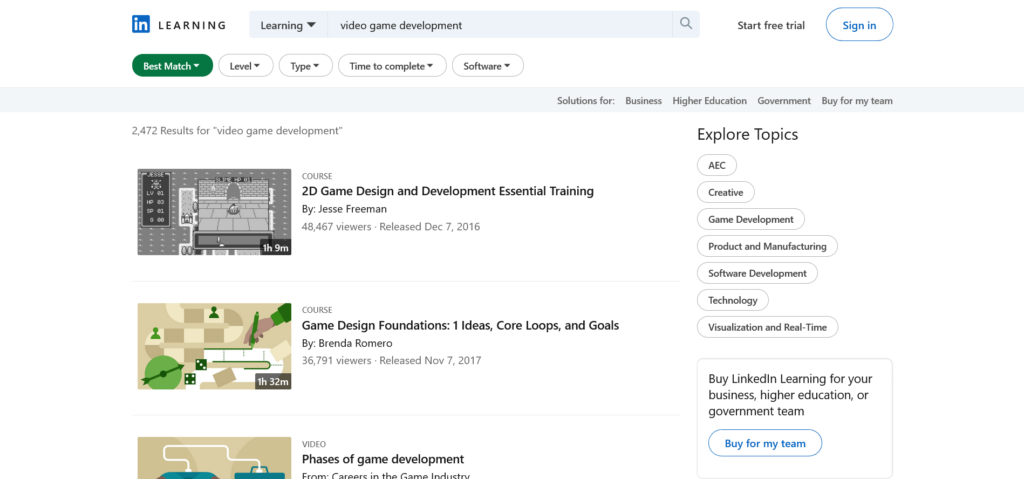
LinkedIn Learning is a powerhouse of courses and tutorials covering a myriad of skills crucial in the video game industry. From game design principles to programming languages used in game development, LinkedIn Learning offers a diverse range of courses curated by industry experts.
Udemy
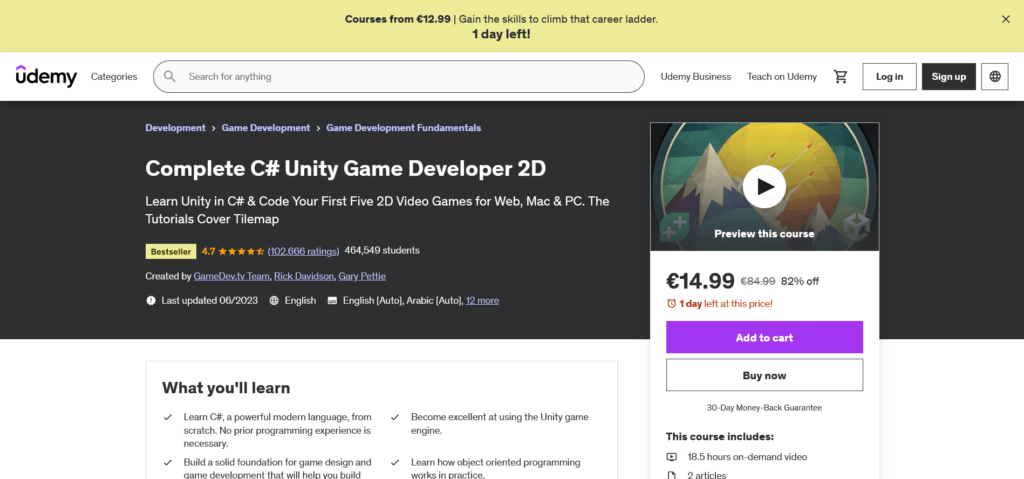
Udemy is a popular online learning platform that hosts a vast library of courses relevant to video game development. Whether you’re seeking talent in programming, graphic design, or game testing, Udemy’s courses are taught by seasoned professionals and industry leaders.
Coursera
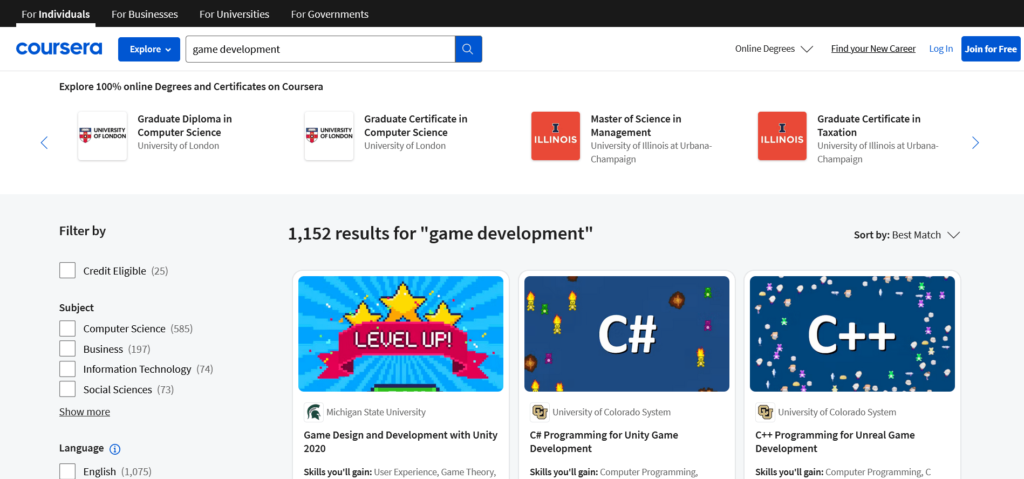
Coursera partners with top universities and organizations to offer high-quality courses, certificates, and degree programs. For video game companies looking for talent with a strong academic foundation, Coursera provides access to courses covering game design, virtual reality, and artificial intelligence.
Pluralsight
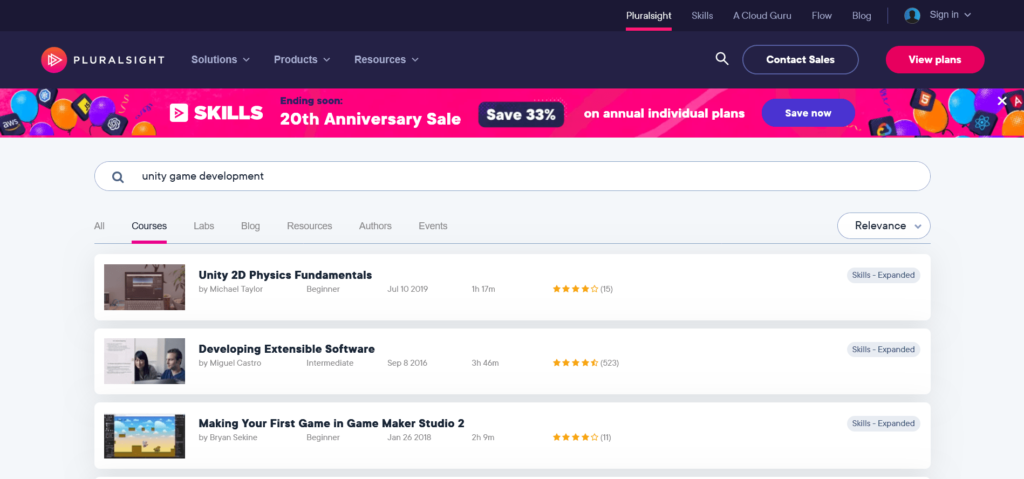
Focused on technology and software development, Pluralsight offers a comprehensive library of courses for professionals in the video game industry. From game programming to 3D modeling, Pluralsight provides in-depth learning resources to hone the skills of potential hires.
Skillshare
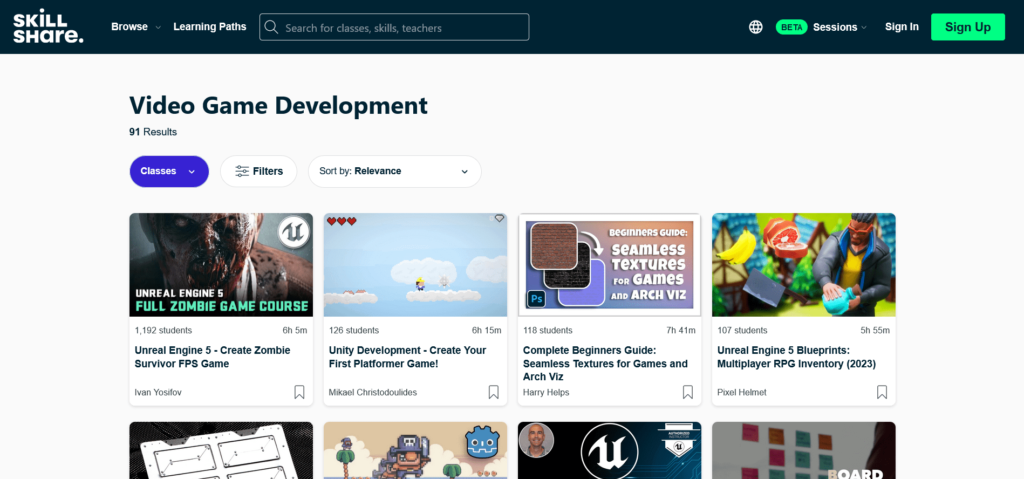
Skillshare is an ideal platform for individuals seeking hands-on, project-based learning. Game developers can benefit from Skillshare’s interactive courses that cover various aspects of game design, animation, and user experience.
edX
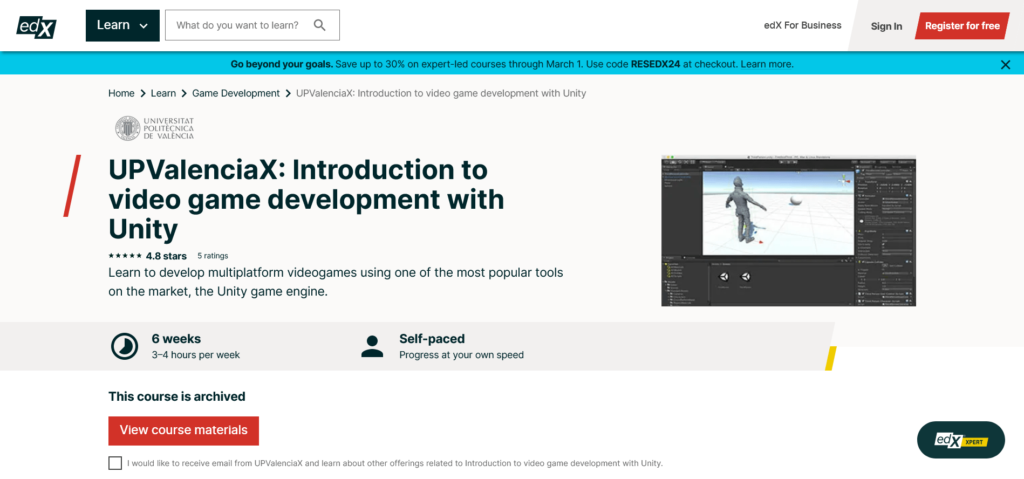
edX collaborates with universities and industry experts to deliver high-quality courses and programs. Video game companies can find specialized courses on edX covering game development, virtual reality, and augmented reality.
Top 10 Most Searched Questions About Hiring Talent for a Video Game Company
- What Skills Should I Look for When Hiring for a Video Game Company?
When hiring for a video game company, prioritize a mix of technical skills, creativity, and passion for gaming. Seek candidates proficient in programming languages, game design principles, and collaboration.
- How Can I Attract Top Talent to My Video Game Company?
Attracting top talent requires a combination of competitive salaries, appealing benefits, and a positive work culture. Highlight your company’s unique projects, growth opportunities, and commitment to employee well-being.
- What Challenges Are Unique to Hiring for Video Game Development?
Understand the unique challenges in video game development, including the need for multidisciplinary teams, staying current with technology trends, and addressing the competitive nature of the industry.
- How Important is Industry Experience When Hiring for a Video Game Company?
While industry experience is valuable, don’t underestimate the potential of passionate individuals with transferable skills. Consider candidates with a strong portfolio, relevant projects, and a genuine love for gaming.
- What Role Does Company Culture Play in Video Game Talent Acquisition?
A positive company culture fosters creativity and collaboration. Emphasize your company’s commitment to a supportive and inclusive culture that encourages innovation and individual growth.
- How Can I Evaluate a Candidate’s Passion for Gaming During the Hiring Process?
Assess a candidate’s passion for gaming through discussions about their favorite games, industry knowledge, and personal gaming projects. Look for candidates who are not just professionals but genuine enthusiasts.
- What Recruitment Strategies Can Help My Video Game Company Stand Out?
Stand out by leveraging social media, industry events, and online platforms. Showcase your company’s projects, values, and employee testimonials to create a compelling recruitment brand.
- How Do I Ensure Diversity in My Video Game Development Team?
Prioritize diversity by actively seeking candidates from different backgrounds, experiences, and skill sets. Foster an inclusive work environment that celebrates varied perspectives.
- What Practical Interview Processes Can I Implement for Game Development Candidates?
Design interview processes that assess technical skills, problem-solving abilities, and cultural fit. Consider practical exercises and scenario-based questions to evaluate candidates effectively.
- How Can My Video Game Company Future-Proof Its Talent Acquisition Strategy?
Stay ahead of industry trends, invest in ongoing training for employees, and adapt recruitment strategies to evolving technologies. Embrace flexibility to attract and retain talent in a dynamic landscape.
Conclusion
Hiring the right talent for a video game company is a strategic investment that pays off in the form of innovative and successful game titles. By understanding the unique needs of your company, crafting compelling job descriptions, leveraging specialized recruitment platforms, promoting diversity, prioritizing passion, conducting thorough assessments, investing in continuous learning, and fostering a positive company culture, you can assemble a team that not only meets but exceeds the challenges of the dynamic gaming industry. Remember, the success of your video game company begins with the talent you bring on board.














